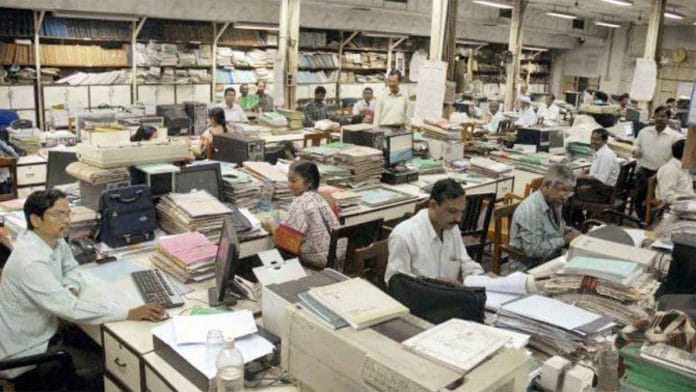The coronavirus crisis is threatening both lives and livelihoods, at a scale that we have not experienced before. Many industries, such as travel and tourism, are likely to see long-term demand erosion. As a result, millions of jobs are at significant risk in the next two years or so. Given these circumstances, it is necessary to consider undertaking some extra efforts to stay employed and employable.
There are three broad areas that may contribute to your success during these troubled times. First, you have to ensure that you are doing the work that no one else in your organisation is. You also have to show the quality of your work through key performance indicators (KPIs) that matter to the organisation. Second, you have to build strong relationships and networks, so that you have enough people supporting you through good and bad times. And, finally, you have to continue learning and improving your skills to keep up with the changing times and requirements.
Many people working in government jobs believe that performance and growth do not matter. Their expectation is that they will keep getting promoted over time, anyway. They also claim that most assignments seem to be made in an arbitrary manner, thus negating any efforts on their part to develop new skills. However, this is not the case. Even in government jobs, it is very obvious as to who is doing high-quality work and who is simply wasting time. The high-performers are rewarded with important assignments and rise throughout their careers.
Also read: To cut costs, Indian Railways to axe thousands of retired staff it had re-hired
Performance
Let’s first focus on performance, both in the private and public sector. The work that you do should be well-defined and easily measurable. You should be able to define the three or four key metrics through which your output can be measured (your KPIs). Real, hard numbers are important here, because your value is only clear when you can show that you are personally getting something done that nobody else can. Equally, it has to be clear that these KPIs create value for the organisation. For instance, a salesperson could be closing business worth Rs 10 lakh every month. A customer service representative could be satisfactorily handling 40-50 complaints per day. An HR person could be hiring 6-8 people every day.
You and your supervisor have to work collaboratively to define these KPIs. Once you jointly agree on your KPIs, it becomes your responsibility to track these regularly and discuss this with your supervisor often. Your supervisor should also be willing to give you honest feedback on whether your performance is being valued by the organisation and what is it that you can do to improve your performance. Honest performance management is necessary to ensure that your work is recognised and valued.
Also read: The office isn’t dead. It is just recovering from the pandemic
The personal rapport
Unfortunately, there are many occasions when good work is simply not enough to stay employed. Companies often have to downsize their operations when demand declines. Entire divisions and groups then are shut down. What do you do then? These are the times when your professional relationships play an important role. If you have cultivated good relationships across the organisation and are known as a high-performer, you could get pulled into other assignments in a different division or department. Similarly, if you are known in the industry as someone who has excelled in one company, then it is likely that you will be hired by some other company in the same industry.
Good relationships and networks are not built when you need them. They are built when you do not need them. You have to actively get to know people across the organisation and the industry ecosystem. During the coronavirus crisis, you cannot go to industry events and conferences, but surely you can attend good webinars. You can share emails on interesting articles in your network. You might want to post interesting thoughts on various blogs or Twitter. Your social media visibility should be strong and fresh. So, there are many ways in which you can stay connected with people that matter.
Also read: RBI survey shows consumer confidence at record lows, Indians pessimistic about economy, jobs
Skill development
The coronavirus crisis has definitely saved us time. We do not need to travel or commute as much. We are likely to be spending less time in meetings. However, research indicates that productivity may go down when working from home because workers generally lack a productive working environment at home and miss the social interaction at their workplace. So, it becomes all the more important to focus on performance management and learn new skills.
Remote learning has become really easy now. There are many online courses that are available from top universities and institutions through learning platforms such as EdX, Coursera, Udemy, and many others. Books, podcasts, documentaries, Ted Talks, and news portals provide great coverage on all topics. It is very easy to learn about new topics and issues – every expert is available on demand, every subject can be explored in detail.
As they say, when the going gets tough, the tough get going. This is the time to get going on your career. You can surge ahead by transparent performance management, relationship building, and continuous skill development. As India becomes more resilient, you must also make yourself resilient and be ready to face any challenge.
The author is the Chairman of the Standing Committee on Finance in Parliament and a Lok Sabha MP from Hazaribagh. Views are personal.







A good article to fire up one’s competition spirit if ever one shall feel let down or slack in their work.